萬發屯
吃喝玩樂奔諾獎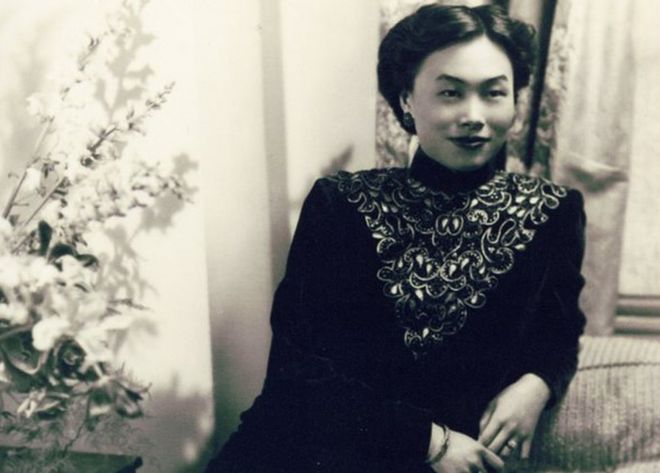
When Anna Chennault died last week at the age of 94, the world lost one of the most influential powerbrokers it had never heard of.
Also known by her Chinese name, Chen Xiangmei, she was a stylish fixture on Washington DC's political circuit - but also an unofficial diplomat who skilfully navigated the currents and eddies of 20th Century politics.
She met former US presidents John F Kennedy and Richard Nixon, and former secretary of state Henry Kissinger. She also met China's Deng Xiaoping and Taiwan's Chiang Kai-shek.
All were reportedly impressed by the woman dubbed by the Washington Post as the "legendary steel butterfly".
"There can only be one Chen Xiangmei in the world, let alone the US," declared Deng after he met her in 1981.
Love at a time of war
Perhaps the key to her charm was her ability to be all things to all people.
To the Americans, she was a staunch anti-communist. But to the Chinese, she was a renowned war hero's widow. And to the Taiwanese, she was a key lobbyist who ensured vital US support.
Born in 1923 in Beijing to well-educated and wealthy parents, she attended university in Hong Kong and later became a reporter for a Chinese news agency.
In 1944, she received the assignment that would change her life. She was sent to Kunming to interview US Maj Gen Claire Chennault, the leader of the Flying Tigers volunteer group of US pilots who battled against Japanese planes to protect China.
She and the general, who was three decades older, fell in love.
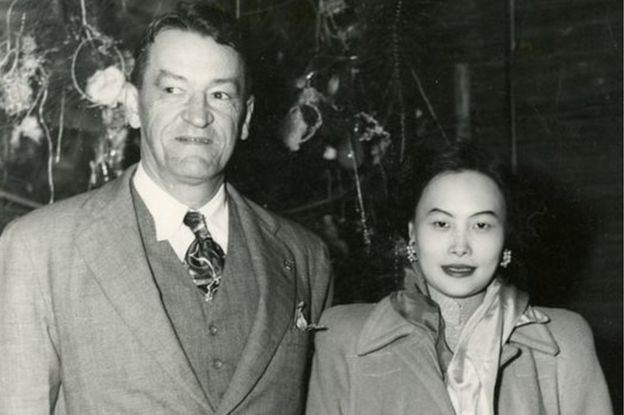
After World War Two ended, Maj Gen Chennault divorced his wife in the US and married Chen Xiangmei. He died in 1958 from cancer.
At the time Anna Chennault, as she was known by then, was just 35 years old. Together with her two young daughters, she moved to Washington DC where she made a new life for herself as a journalist, translator, and businesswoman running her late husband's air transport companies.
Over the years, she became one of America's most influential private citizens, known as much for her charm and persuasiveness as for her glamorous image.
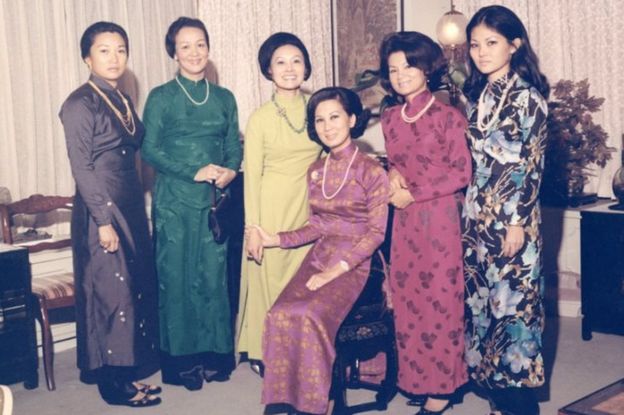
She was famed for her parties in her penthouse apartment at the Watergate complex - yes, that Watergate - which drew the who's who of the US political scene. Among them was Richard Nixon, who she supported as a Republican activist and who called her "Dragon Lady".
"She was somebody who interpreted China to Americans, government officials, businesses and the public, to a certain extent. Plus, she interpreted the United States to all these Asian countries," her biographer Catherine Forslund told the Washington Post.
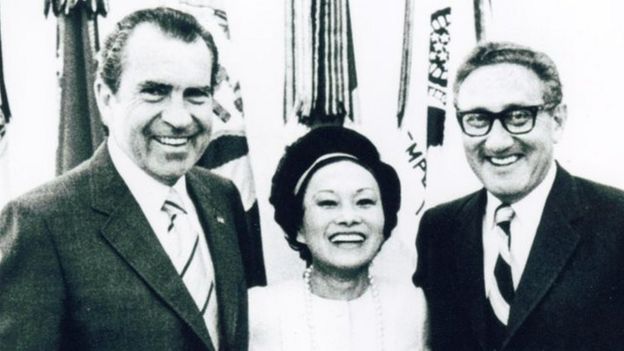
Her life was not without controversy - one of her late husband's companies was purchased by the CIA and was reportedly used for anti-communist activities. And then there was the infamous "Chennault affair".
In 1968, the FBI secretly recorded Mrs Chennault telling the South Vietnamese government to boycott the Paris peace talks. A secret liaison for Nixon, she had essentially sabotaged a peace deal in order to improve his chances in the US presidential election.
She was accused of treason by outgoing president Lyndon B Johnson. But days later Nixon won the election, and she was never prosecuted.
Envoy of friendship
Anna Chennault may have been a figure of intrigue, but as Chen Xiangmei she was seen as someone quite different.
To China, which still holds the Flying Tigers and Claire Chennault in high regard, she has primarily been seen as the keeper of her husband's flame. In 2015, she even received a medal from Chinese President Xi Jinping.
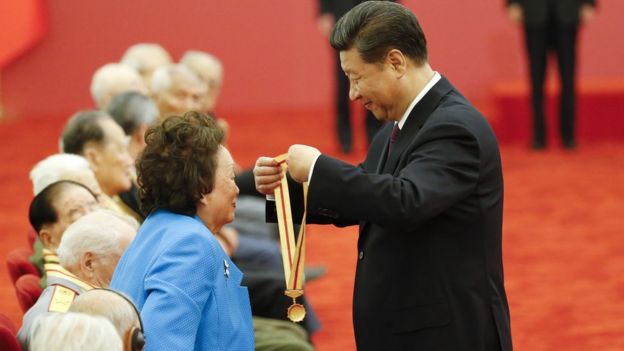
She was also seen as a successful overseas Chinese figure, one who played a key and patriotic role as a go-between for the US and China when the latter began opening up after the Cultural Revolution.
The Chinese press has focussed on her US political achievements, such as becoming the "first Chinese to have entered the White House" when she received a presidential appointment from John F Kennedy.
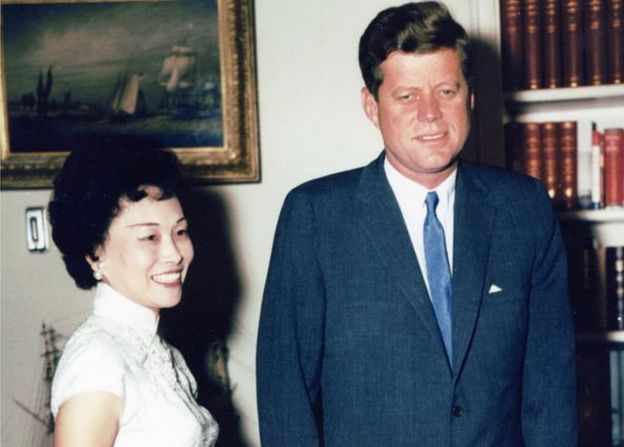
China's state news agency Xinhua called her "a famous Chinese-American and envoy of friendship for the US and China".
Such praise may be extraordinary considering that she was initially, for many decades, a strong opponent of the Communists in China.
By 1950, the Chinese Civil War had ended and the Kuomintang had set up a government in Taiwan. Mrs Chennault was close friends with Kuomintang leader Chiang Kai-shek and his wife Soong Mei-ling.
For years, she lobbied US politicians on behalf of Taiwan, and was dismayed when the US chose to recognise the Chinese Communist government in 1979.
But as the political winds began to shift, apparently so did her stance. In 1981, she was sent by Ronald Reagan to China as an unofficial US emissary, amid warming relations.
It was the first time she had visited her homeland in more than three decades. There, she met with Communist leader Deng Xiaoping, and US newspapers carried a picture of them smiling and shaking hands.
Upon her return to Washington, Mrs Chennault insisted to the US press that she had not had "a change of heart" about the Communists, but also admitted that people must be "humble enough to learn, courageous enough sometimes to change their positions".
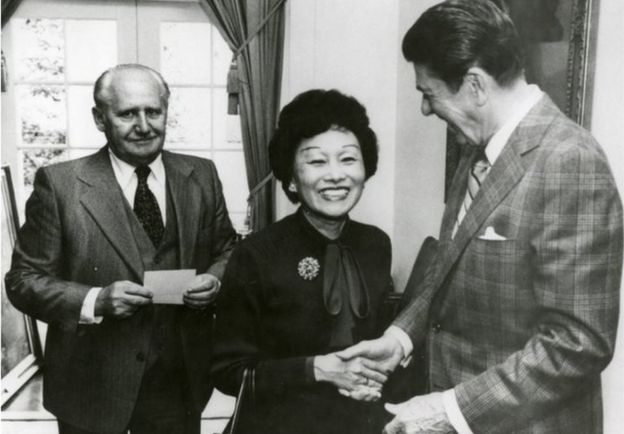
Meanwhile in Taiwan, she continued to be feted for her earlier anti-communist efforts, and its foreign ministry this week paid tribute to her "long-term interest and active contributions to US-Taiwan relations".
Later in life, she devoted her time to improving relations among the three places, and was said to have acted as an unofficial conduit for successive governments. She led one of the first groups of Taiwanese business executives to visit mainland China in 1990, as well as US trade missions to China and other parts of Asia.
When she began her political career as a powerbroker, she appeared to resent the lack of recognition, telling People magazine that she "despised" being described as a mere "hostess".
But she eventually seemed to make peace with her behind-the-scenes role. "My whole life, from studying in exile to working in journalism to fighting it out alone in the US, has been filled with all kinds of bittersweet experiences," she told Chinese reporters in 2002.
"Under eight US presidents, I have taken on many important but unpaid jobs. This road I've travelled on has been very interesting - so I have not lived for nothing."
BBC




